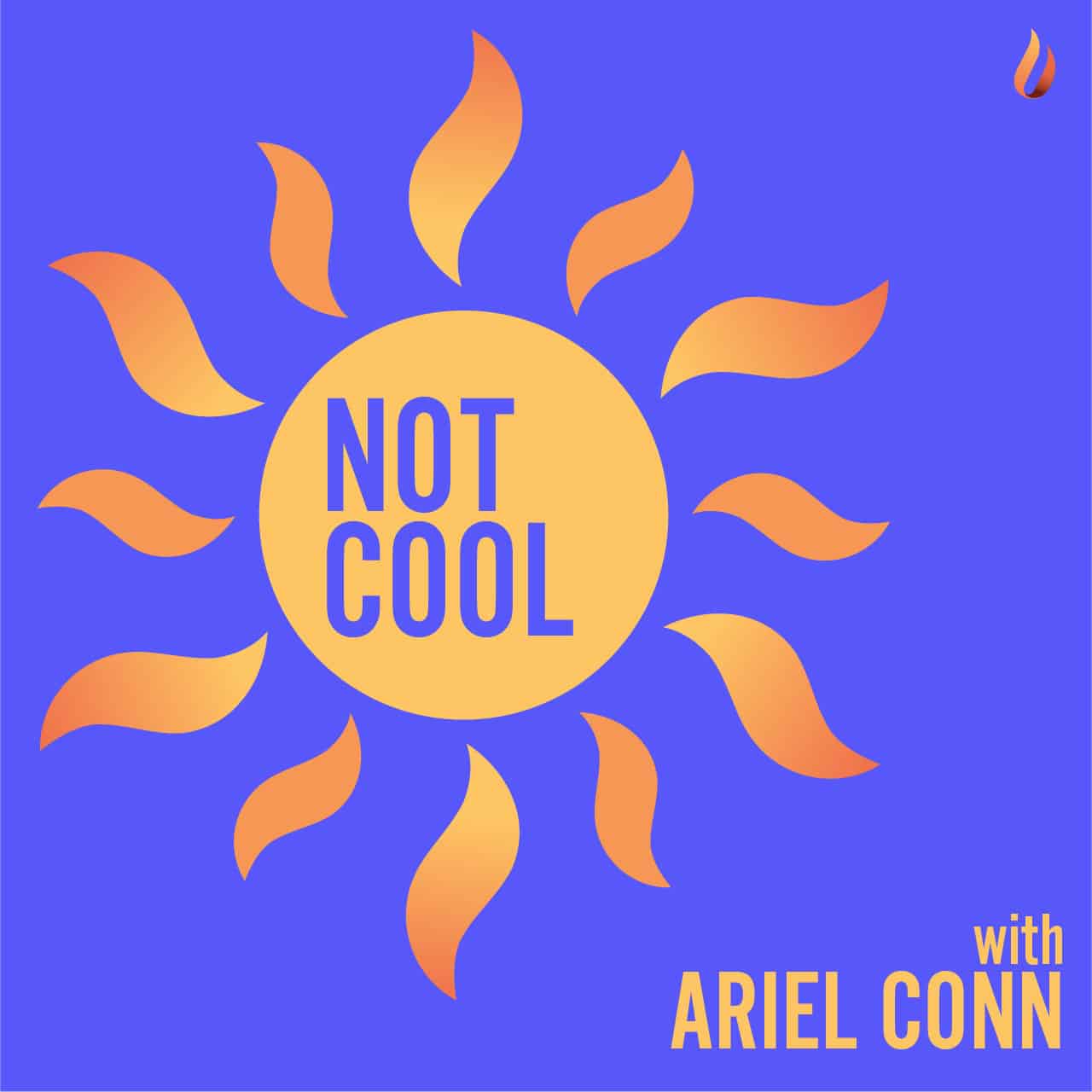Not Cool Epilogue: A Climate Conversation

In this brief epilogue, Ariel reflects on what she's learned during the making of Not Cool, and the actions she'll be taking going forward. Read the full transcript below.
The way I would put it is: we produced this problem, and we can solve it. It's produced by humans, it can be solved by humans.~ Alan Robock
There's a huge international push in the right direction, and it's only going to take people to just put a bit of effort in, and I'm sure we can do it.~ Joanna Haigh
I'm betting long on humanity because I don't yet think we've had our finest hour. I'm hoping that our finest hour comes in the context of addressing climate change.~ Cullen Hendrix
Part of what we need is a new normal. And I think the new normal is that we all think about these decisions every day.~ Deborah Lawrence
Roll out whatever policies you can find that will help emissions go down.~ Glen Peters
I think more and more people are getting educated, more and more people are voting, and if that trend continues, which I hope it will, then I'll stay hopeful.~ Lindsay Getschel
I truly do believe that we all have part of the solution in our own hands.~ Stephanie Herring
Transcript
Hi everyone. Ariel Conn here with some final thoughts for Not Cool, a climate podcast.
Last spring I became pretty overwhelmed by climate-related news. The IPCC report was calling on countries to make massive changes by 2030 if we wanted any hope of keeping global warming under 1.5 degrees celsius, and every new study seemed to indicate that things were even more dire than we had previously thought. So I decided to reach out to a few climate scientists to learn more about what was really going on, and what we could realistically do. I thought that if I could talk to just five or six scientists, we could help paint a better picture of what the problem was and how we could fix it. I thought this could be a quick project in May that might overflow into June, and then we’d release a single episode a week for a few weeks during the summer.
31 experts and 26 episodes later, well into winter, we’re finally concluding this series. And not because we’ve covered everything there is to cover. There are so many more topics I wanted to get into, like feedback loops, the impact of animal agriculture, how to shape climate policy — the list goes on and on. For each question that was answered, more kept cropping up.
But I also learned a lot. And perhaps the most important lesson from all of these interviews was that, as bad things are -- and they are bad — these problems are solvable. The technical alternatives for most fossil fuel technologies already exist. We just need the political will to start implementing them.
That’s not to say that there aren’t some pesky problems, like the carbon emissions associated with construction and flying that we haven’t yet figured out how to solve. But there is hope.
However, I do want to be clear that this hope is not enough if we remain complacent. That’s why, in addition to voting next year, I am personally committing to climate action.
- Over the next few months, I will ensure my banks do not support the fossil fuel industry. I already checked with both of my credit unions, and while one does not support fossil fuels, the other does. So I will be moving my money from that one.
- Though I drive more than I’d like, I rarely use more than a tank of gas per month. I will try to decrease that more. My budget does not currently allow for me to purchase a new electric car, but I will get an electric bike, which will make the hills where I live easier to deal with than the manual bike I currently own.
- I will consume less meat
- I will continue to consume less overall, I will continue to do my best to avoid single use plastics, and I will continue to try to use a drying rack more than a dryer for my clothes.
- I’m happy to report that the electricity in our house is already powered by wind, which was an option the utility gave us.
- I also live in a town with curbside recycling and composting, which I already use.
It’s worth noting that those last couple of options are available to me because of policies put in place by my town and the utility, which does also highlight how critical policies are toward driving individual action.
The area I’m less certain about how to address is flying, because it’s often necessary for the work I do. But I can at least purchase carbon offsets, and I will try to figure out how to fly less for work in the coming years.
All that said, there are still a lot of questions I would like to get answered related to the climate crisis, and I’m looking forward to exploring these more in the future, though likely in other formats.
I have loved every minute of these interviews, and I cannot thank our guests enough for talking with us and sharing their insights. I hope you have enjoyed this series, and that you’ve found it helpful. Even though the series is ending, your support is still valuable to FLI, so, as always, we’d love it if you took a moment to like the episodes, share them, and maybe even leave a good review.
Related episodes

Can AI Do Our Alignment Homework? (with Ryan Kidd)

How AI Can Help Humanity Reason Better (with Oly Sourbut)


